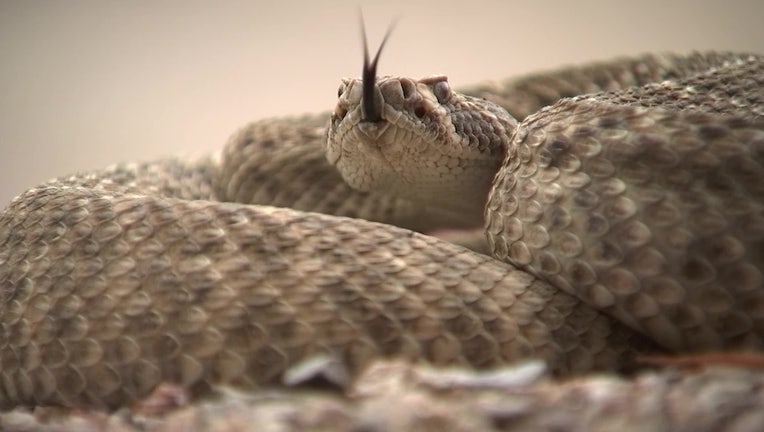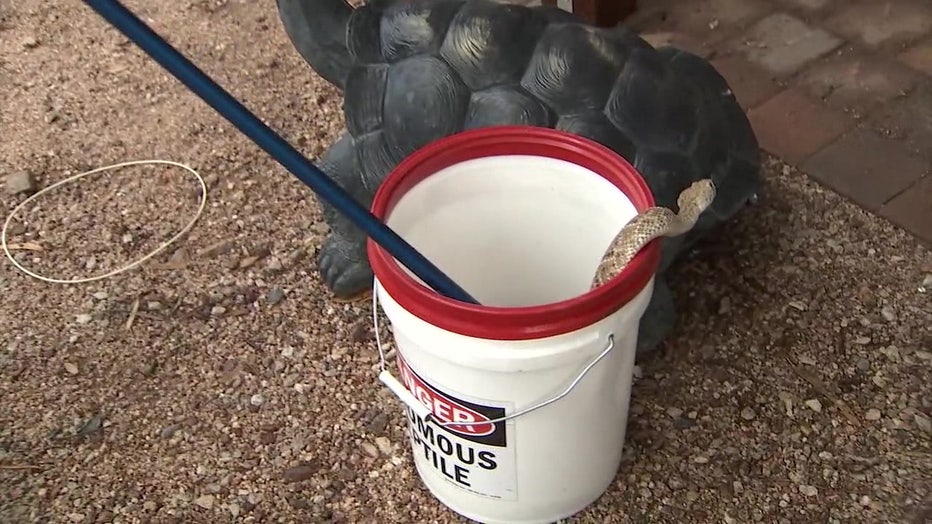Over 100 rattlesnake bites reported in Arizona in 2024, experts warn of increasing danger

PHOENIX - With monsoon season's arrival, people are getting outside when they can. But it's important to note, humans aren't the only ones taking advantage of the cooler weather.
The rattlesnakes are emerging as well.
While some snakes like the corn snake are harmless in nature, doctors are more concerned about the venomous rattlesnakes.

Rattlesnake bites in Arizona surge amid monsoon
Experts are seeing a surge in rattlesnake bites as monsoon storms cool the air enough to spark the reptiles' curiosity. FOX 10's Lindsey Ragas has the story.
"They have the potential to kill us, rattlesnakes. Their venom is serious," said Cale Morris who has been the venom manager at Phoenix Herpetological Sanctuary for 20 years.
A rattlesnake bite was serious enough to have a man rescued off Daisy Mountain on July 16.
"There are a few treatments for rattlesnake bites, but by far the most effective treatments, really, only effective treatment is antivenom," said Dr. Travis Nick, medical director at Scottsdale Ranch Animal Hospital.
Featured
Rattlesnake safety: Scottsdale Fire officials offer advice after boy was bitten
Scottsdale Fire officials are offering advice to the public on rattlesnakes, after a boy was bitten while on a trail.
"Rattlesnakes and other vipers are most active in the summertime," he added. "90% of bites in the U.S. happen between April and October."
He says Arizona has more species of rattlesnakes than anywhere in the U.S.
"We have 13 different species of rattlesnakes," he said. "So we're significantly at risk."
Dr. Meghan Spyres with Banner Poison Center says monsoon season is when she sees more snake bites.
What happens during a rattlesnake bite?
"Rattlesnakes here cause tissue damage and they cause hemotoxicity, which basically means that your blood doesn't clot very well. So antivenom helps prevent the progression of that," she said.
So far just over 100 bites have been reported in Arizona this year.
"My research shows they're chickens, you know? They're scared of us and when we try to mess with them. Their most common behavior - like if we were to throw rocks - they try to flee because they're scared. So their main behavior is hiding and fleeing," she said.

If you see a snake on a trail, doctors say to treat it like a rattlesnake and don't bother it.
If you are bit, doctors say it's best to go to the ER right away and don't use any devices to suck out the venom.


